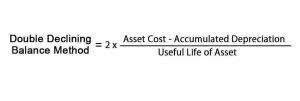
These solutions leverage advanced technologies like artificial intelligence, cloud computing, machine learning, blockchain, natural language processing, and accounting automation. Furthermore, modern accounting emphasizes real-time data accessibility and integration. Cloud-based accounting platforms allow financial information to be accessed from anywhere, at any time, facilitating better collaboration among team members and enabling timely decision-making.

Blockchain Technology in Financial Accounting: Enhancing Transparency, Security, and ESG Reporting
The future use of blockchains in accounting systems is dependent on the development of such integrated accounting systems. The literature confirms that by using the blockchain technology the possibility of triple entry accounting is created ( Coyne & McMic kle, 2017; Dai Vasarhelyi, 2017 , Kokina et al. 2017; Wat son Mishler, 2017). A private blockchain is characterised by a permissioned ledger, while public blockchains are characterised by public decentralized ledgers that are accessible to everyone who desires to participate. In other words, participation is free as there is no condition attached to participating in the process of creating or adding blocks to the chain (Buterin, 2015). In a fully decentralized blockchain, validation is based on the mechanism of consensus and the proof of work. The Bitcoin is an example of a fully decentralized blockchain where the chain with the most proof-of-work is taken to be the valid chain (Swanson, 2015).
- This article explores how blockchain is transforming accounting practices, making them more transparent and efficient.
- This distributed and tamper-resistant nature eliminates the need for intermediaries, reduces the risk of fraud, and enhances transparency.
- Auditors can access real-time data, reducing the time spent on manual verification and enabling more efficient audits.
- Sustainability reporting and a focus on advisory services are also integral to contemporary accounting.
- Blockchain technology has the potential to replace the 500-year-old double-entry accounting system.
- Has more than 20 years of experience in internal audit and accountingincluding financial, operational, compliance, and information andtechnology audit.
Audit and Assurance

In a fiat currency-based economy, value is transferable through the currency (money) while in the crypto economy, value is transferred by means of an internet-based or virtual value containers referred to as coins or tokens. Thus, the primary function of a coin is to convey value between participants in the crypto economy. Each account in the double-entry system will have a corresponding blockchain account. Basically, when a company purchases inventory from a supplier on account, a journal entry debiting inventory and crediting accounts payable for “X” amount is entered in the ERP system. A corresponding entry is made simultaneously to the blockchain accounts and ledger using a token.
Main Menu v2 – Solutions – CAS
A passionate advocate for the transformative power of digital tools, Peyman’s expertise spans across helping startups and established businesses navigate digital landscapes, drive growth, and stay ahead of industry trends. His insights into analytics and communication empower companies to effectively connect with customers and harness data to fuel their success in an ever-evolving digital world. If someone tries to change a block, the hash changes, and everyone on https://www.kezmu.hu/small-business-accounting-software-start-for-free/ the network knows something is wrong. This makes blockchain technology a powerful tool for preventing fraud and errors. It’s a big step up from traditional methods, where data can be more easily manipulated.
How Blockchain Is Transforming Accounting, Auditing and Finance: A Systematic Review
Blockchain offers a more secure way to store data because it’s spread across many computers. The blockchain enables the implementation of a system of accounting that requires transaction verification from a neutral third party. A total of three entries will be created, because each party (the two parties involved in the transaction and the intermediary) creates a record for the transaction (Grigg 2005). Such a system is referred to as a “triple-entry” accounting information system.
- The instant verification and immutability of data through cryptography functions provides for the integrity and reliability of data and caters for the removal of the function of intermediaries with related cost savings.
- A private distributed ledger requires an invitation to participate in the network and must be validated by a process (i.e., existing members decide on future participants) or by an algorithm.
- They developed a blockchain-based platform to reconcile and verify inventory items for a wine distributor in an efficient, accurate, and tamper-proof manner.
- Each account in the double-entry system will have a corresponding blockchain account.
- Blockchain is transforming taxation processes by offering a transparent and secure framework for recording transactions, enhancing tax reporting and collection.
- Because of this distribution—and the encrypted proof that work was done—the blockchain data, such as transaction history, becomes irreversible.

Smart contracts are like digital agreements that can automatically carry out actions when certain conditions are met. For example, they can release payment automatically when a service is completed. Smart contracts can easily and cost effectively transfer ownership of a car or transfer corporate shares without needing a third party, such as a bank or a stockbroker, and with immediate settlement. It is this removal of “middlemen” by enabling trusted peer-to-peer exchange that is driving what some have come to refer to as “Web 3.0”, and the creation of $2 trillion of wealth in the last ten years. “Our technology has finally caught up with our desire to transact, without the need to trust the other party, and without the need for an intermediary,” said Quaranta. Our Blockchain & Digital Assets Solutions team are ready to help your business trailblaze in this space.

3. Evidence-Based Understanding of Blockchain’s Impact on ESG
BlockchainBlockchain technology is transforming accounting technology by offering a secure and transparent distributed ledger system for recording financial transactions. Blockchain is gaining traction in accounting due to its potential to enhance security, accelerate transaction speed, and reduce costs. Accountants can leverage automated smart contracts to streamline tasks such https://www.bookstime.com/articles/tax-season as revenue recognition and invoice processing, freeing up time for strategic analysis. The technology’s decentralized nature ensures data security and integrity, protecting sensitive financial information. Blockchain’s real-time transaction processing and traceable audit trails enhance efficiency and transparency.
Blockchain helps resolve issues like incorrect figures or duplicate entries. Multiple parties validate the transduction cryptographically prior to recording. But let’s be real, getting it blockchain in accounting off the ground isn’t always a walk in the park. Not everyone’s a coding whiz, and blockchain can feel like you need a PhD to understand it. Here’s a primer on the potentially transformative digital ledger technology. Adopting cloud-based, AI-powered accounting software can help you increase practice efficiencies while growing confident with the latest technology.
Property Records
A cloud-based solution that makes it easy for accounting firms to manage client work, collaborate with staff, and hit their deadlines. • Automating transactions with less error in data on both sides of the transaction. Blockchain undermines the pain point of fraudulent actions through immutability and security.
